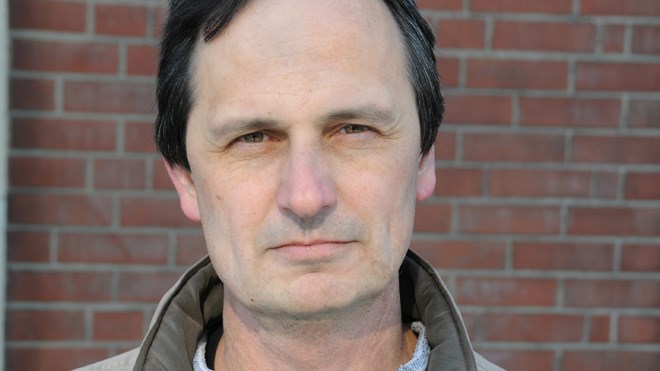The president of the union representing 1,150 clerical and service workers at Health Sciences North is disappointed with the operating budget released by HSN’s board of directors marking 113 jobs that need to be cut because he fears many of them will be his members.
While neither the board nor hospital administrators have said where the cuts will be made, CUPE 1623 President Dave Shelefontiuk did his own math after attending a meeting of union leaders with HSN president and chief executive officer Dominic Giroux.
The budget identifies 37 fewer full-time equivalent jobs in management and non-union positions and 76 FTEs in unionized positions to be cut. By his rough calculations, Shelefontiuk figures 62 FTE positions will be lost among his members.
“Am I disappointed? Absolutely,” Shelefontiuk said shortly after the budget was made public Monday. “We were pretty clear to (Giroux) saying, ‘We can’t cut front line any more. We can’t.’”
Hospital board chair Nicole Everest said in a news release that the board is optimistic cuts can be made by attrition rather than layoffs. She cited 184 employees as eligible for unreduced pensions by 2019.
Shelefoniuk doesn’t necessarily buy that figure.
“I don’t see that many going out the door,” said the union president who has worked in Sudbury’s hospital system for more than 30 years. “I don’t know how they’re going to do it.”
Even if people have full pensions, it doesn’t mean they are ready to retire if they are in their fifties and early sixties, he said.
“I think they’re waiting for people to retire through attrition, but they didn’t say that,” said Shelefontiuk of his meeting with Giroux. “It was kind of vague.”
Many CUPE members attended an afternoon session at which Giroux outlined details of the $505.8-million budget that will run a $4.9-million deficit, less than the one per cent of the total the board had directed hospital officials to come in under.
Shelefontiuk said Giroux told union leaders and other employees that the four hub hospitals in the northeast are in “financial trouble.”
The chairs of the boards of all four hospitals — including those in North Bay, Timmins and Sault Ste. Marie — wrote last week to the North East Local Health Integration Network. They expressed concerns about hospitals’ ability “to respond to our patients’ healthcare needs while facing financial positions that are consistently precarious.”
The LHIN has put the implementation of HSN’s 2018-2019 budget on hold, pending a third-party validation to be completed by June 30.
“To my mind, the LHIN’s buying time,” said Shelefoniuk, who is characteristically blunt. “There’s an election coming up. Really think about it. An election coming up (June 7). They’re not going to validate it until June 30. They aren’t making any decisions until after the election.”
Giroux has expressed his optimism that HSN will receive some of the $822 million in new hospital funding Premier Kathleen Wynne announced earlier this year. Shelefontiuk fears that money will be quickly eaten up by larger hospitals in southern Ontario and won’t make it to the northeast.
HSN directors boasted in their news release Monday about approving a budget without cutting beds and which contains a $1.4-million increase in clinical departments, including a new pain management clinic.
The budget also reflects the 2019 completion of the 4,800-square-foot PET/CT suite and the 28,000-square-foot Learners’ Centre.
Shelefontiuk believes more than half the 113 job cuts will be his members.
“We were straight-forward with them. Front line cannot take any more. You’re killing us,” Shelefontiuk said after the budget was released.
They can’t cut clinical programs, he said of directors and administrators, so they will look to CUPE to reduce staff. Sick time is already up among clerical and service workers as are WSIB claims.
“It doesn’t make any sense to us,” he said.
Kate Fyfe, vice-president of performance and accountability and special adviser to the chief executive officer of the LHIN, said the validation review will assess the impact HSN’s budget may have on service delivery for patients throughout the northeast.
It will also identify the work that must be done with health system partners on the proposed changes to ensure all partners are engaged and part of system-level capacity planning.
Fyfe said the LHIN’s role is to ensure there is a strong health care system for northerners now and in the future.
(Read more later today about HSN’s 2018-2019 budget and the third-party validation ordered by the North East LHIN.)
Carol Mulligan is an award-winning reporter and one of Greater Sudbury’s most experienced journalists.
